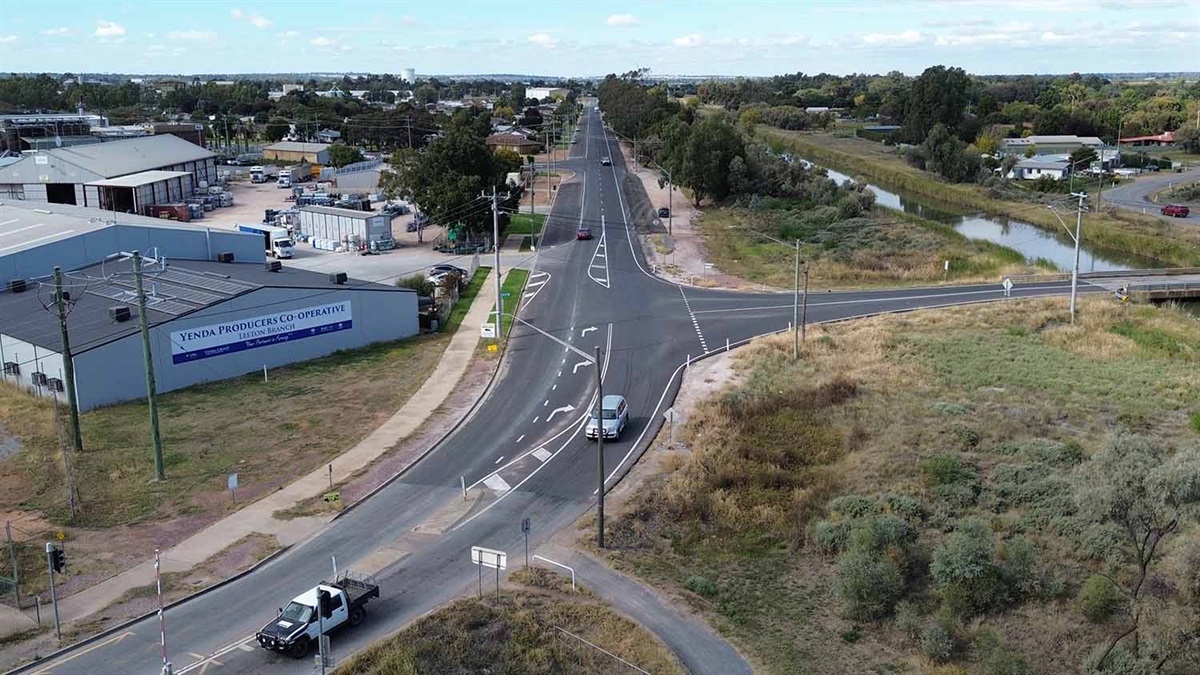ALLY LANGDON: Prime Minister, Scott Morrison, joins us now in Perth. Prime Minister, good morning.
PRIME MINISTER: G’day, Ally. How are you?
LANGDON: Pretty well, thank you. I’ll tell you what, you crash tackle a little kid and you get a bounce in the polls, don’t you?
PRIME MINISTER: How good was Luca yesterday with that rap? That was, I mean, he is he is quite a quite a character and he’s a good little sport. We had, we had a lovely chat the other night with his mum, Ally, as well. So I’m pleased to see the rest of the country have got to know him as well.
LANGDON: Yeah, look, we did indeed. And he red carded you, which gave us all a bit of a laugh. But look, some big issues we want to discuss today. Look, electricity prices, they’re to jump over coming months anywhere from between 15 to 130 per cent. That’s depending on the provider. This is right as winter hits hard. If you win, what would you do about that?
PRIME MINISTER: Well, we continue to put downward pressure on that. We’ve already seen electricity prices fall more than 10 per cent since I became Prime Minister and the way we’ve been doing that is keeping the big electricity companies honest with the the retail law changes and big stick legislation which has ensured that people [inaudible] –
LANGDON: But, Prime Minister those prices are about to go up significantly.
PRIME MINISTER: Exactly.
LANGDON: The big providers by at least 15 per cent, the smaller providers by 130 per cent. I mean no one can cover that.
PRIME MINISTER: Well my, my point is this – what we do with the electricity retailers is keep them honest and make sure that people’s energy prices don’t go onto default [inaudible] that are much higher levels. We’re ensuring that there’s more affordable, reliable energy in the system, which puts downward pressure on those prices. We’re seeing some movements in coal prices and things like that, which can have a short-term effect. But the longer term position that we’ve seen from the energy market regulator is a lot more optimistic than some of those short-term scenarios.
LANGDON: But can you do anything to control the price?
PRIME MINISTER: Well, you can’t control the price, but what you can do is put downward pressure on [inaudible]. And that’s exactly what we’ve done. I mean, electricity prices have fallen by 10 per cent under my Government. Now under Labor last time they went up by over 100 per cent. And that is really the difference, because when you have only renewables in the system, which are intermittent, and you don’t have the – what’s called the firming power, the reliable power in the system, which is what we’ve been doing, then, you know, prices move all over the place. And so it’s important to ensure we keep that reliable, affordable power, that we don’t see those power stations closed sooner than they have to. And that can provide greater certainty to people with their power prices.
LANGDON: Okay. It’s going to be a pretty tough win for a lot of people, that along with a fuel more than $2 a litre, and that’s with this excise cut. Do you accept it’s going to get a lot harder for people before it gets easier?
PRIME MINISTER: I do accept that there is extraordinary pressures on the Australian economy that are coming in from outside, all around the world and that’s what’s putting up pressure on prices and upward pressure on interest rates and that’s why how you manage the economy and how you manage finances at this election, that’s the key issue. Now yesterday we saw Labor finally release their costings and I can see why they didn’t want anyone to know because it’s putting up spending, it’s putting up deficits by $8.5 billion, it’s putting up debt by $60 billion, and that’s their best case scenario. And what that can only do is push up inflation, the cost of living, push up interest rates and lead to higher taxes. And that’s certainly not going to help anybody. What we’re, after the 21st, after tomorrow, the same pressures are going to be on the Australian economy and it’s going to come down to who can best manage money. And what we’ve seen over the course of this campaign is Mr Albanese just isn’t across it. He’s he’s quite a loose unit on the economy, on managing finances and that’s only going to make things worse for Australians when you can’t manage money, Labor always comes after yours with higher taxes.
LANGDON: Well, considering those mistakes that he has made during this campaign trail. You still have more than a million people who say they’re undecided how they’re going to vote tomorrow. Who do you think that momentum is with right now?
PRIME MINISTER: Well, that’s up to them. And I’ve always respected the decisions of Australians and those quiet Australians, as I refer to them, out there working hard every day. They’re considering their choice very carefully and that’s why I say to them, we have a great opportunity to secure their future. Take, for example, young people or people of any age looking to buy their own home. They can use their own superannuation under a Liberal National Government, and that’s the only way they’re going to be able to do that, because Labor will never allow them to do that. Look what’s happened with employment. We’ve got unemployment down to 3.9 per cent. It was only two years ago we were facing unemployment rates of 15 per cent, getting it down to 3.9 per cent, ensuring 92,500 extra full-time jobs just in the last month alone. That’s what gives people confidence that top gives them certainty, so they can plan for their future with confidence.
LANGDON: Look, I think you mentioned that number, the problem is people are going backwards and people are struggling. So you’ve got record unemployment, but they’re not feeling that. They’re feeling the pinch. You’ve also got businesses on the other hand, they’re saying that there’s a severe skilled worker shortage in this country and that’s going to impact post pandemic economic recovery.
PRIME MINISTER: Well, that’s all true. That only highlights my point about why economic management and financial management is so important at a time when the whole world. I mean, take inflation, for example, Ally. Here in Australia, yes, it’s a much elevated level at 5.1 per cent. In the UK, it’s 9 per cent. In the United States, it’s 8.5. In New Zealand, it’s almost 7 and interest rates in New Zealand have gone up 125 basis points. In Australia they’ve gone up 25. So we’ve been putting an economic shield, just like halving that fuel tax that you mentioned. We’ve done that for six months. In New Zealand they did it for three. So our economic plan, which has turned around the Budget by over $100 billion, means we are taking action to try and cushion that blow. But those blows come from all around the world. The war in Europe, supply chains, disruptions in the China with being being shut down. These are the pressures that our economy faces. And you don’t want someone who doesn’t know what they’re doing with finances because that means they just put upward pressure on interest rates and inflation and they come after you with higher taxes.
LANGDON: All right. A couple of questions from our viewers. This is Suzanne from the Gold Coast. Have a listen.
VIEWER: My question today is to the current Government. Why have they not acted in the past to assist pensioners to continue to work or to go back to work without being penalised by the loss of their pension or indeed part of it?
LANGDON: Prime Minister.
PRIME MINISTER: We put the pension work bonus in, which allows people to earn, in addition to the income free area, some $12,400 a year and not have their pension touched. And when you put the two together, it’s almost $15,000 a year. And that’s something we introduced in recent Budgets to actually address that very issue. And the take up of it has actually been very, very low. But we put that in place to help people do that. The other thing we did was the Pension Loan Scheme, which actually enables pensioners, if they want to use their own house as a way of supplementing their income, that they can do that. And they’ve been two issues. On top of that, the pension is about 70 bucks a week. Sorry, sorry, 70 bucks a day. And that helps people.
LANGDON: I remember you jumped on Anthony Albanese when he made a little mistake like that previously.
PRIME MINISTER: Well, no, I don’t know if I’d compare those two with the unemployment rate, which I hope he knows what it is now. It’s 3.9 per cent – the lowest level in 48 years.
LANGDON: Nah, nah, he does. Hey look, another question here from Paul in Sydney’s south west. Very quickly, what do you think your legacy will be?
PRIME MINISTER: Well, we’re still building that. And of course, we’ve taken Australia through the worst crisis we’ve seen in generations and we’ve doubled the amount we’ve spent on mental health and we’re fixing aged care and we’re doing all of those things. But the strong economy that we’re going to continue to build in the future, investing in our skills, investing in our infrastructure, investing in clean energy for the future, ensure our commitments to reduce emissions to zero by 2050, ensuring that advanced manufacturing continues to grow and strengthen. And of course, our defence and security has never been stronger. Record investments in defence and ensuring through agreements like the AUKUS agreement with the United States and the United Kingdom. And also, of course, what we’ve done with the QUAD leaders in India and Japan and the United States and Australia.
LANGDON: All right. It’s a long list. It’s a long legacy.
PRIME MINISTER: It certainly is, Ally. And we want to keep going and we can secure, secure that in the future. But a Labor Party that can’t manage money puts all of that at risk.
LANGDON: Okay, so then if you win, what portfolio will Bob Katter be given in a minority Morrison Government? Just kidding. I don’t want to – no, look, good luck tomorrow. It’s been a very long campaign and if nothing else, we thank you because you’ve given us the greatest moment of any campaign trail with that crash tackle on Little Luca the other day. So, yeah, we’re going to watch it one more time because we can. Prime Minister, good luck tomorrow. We appreciate your time this morning.
PRIME MINISTER: Thanks a lot, Ally. Good to talk to you.





